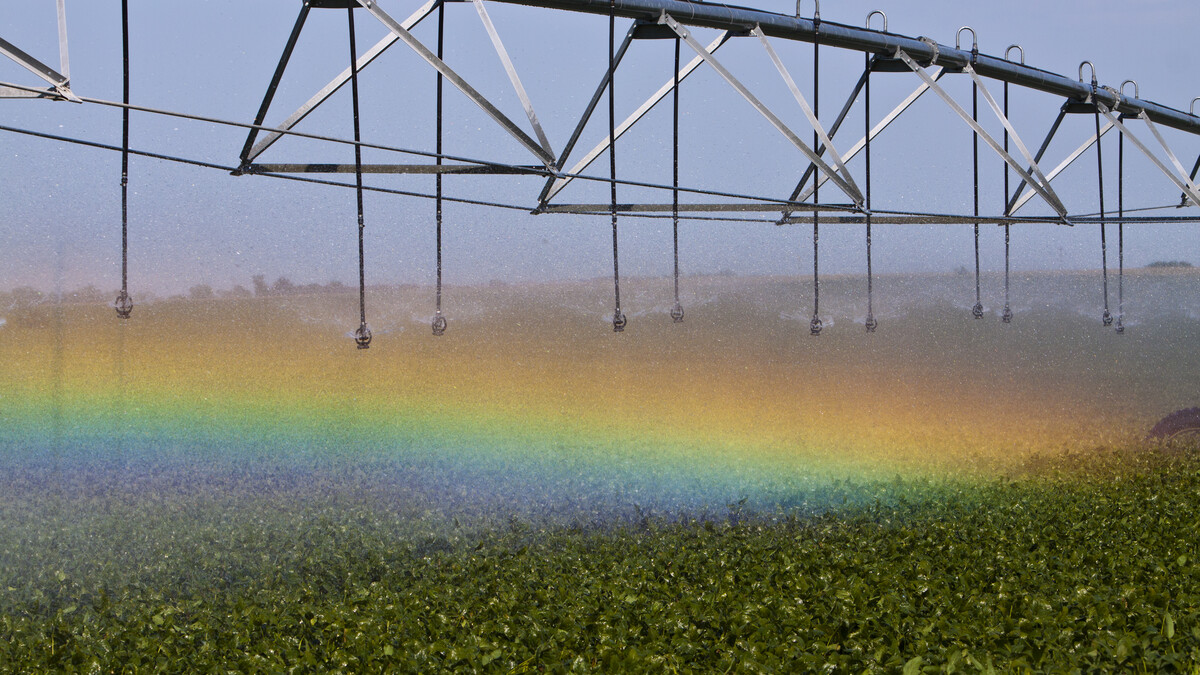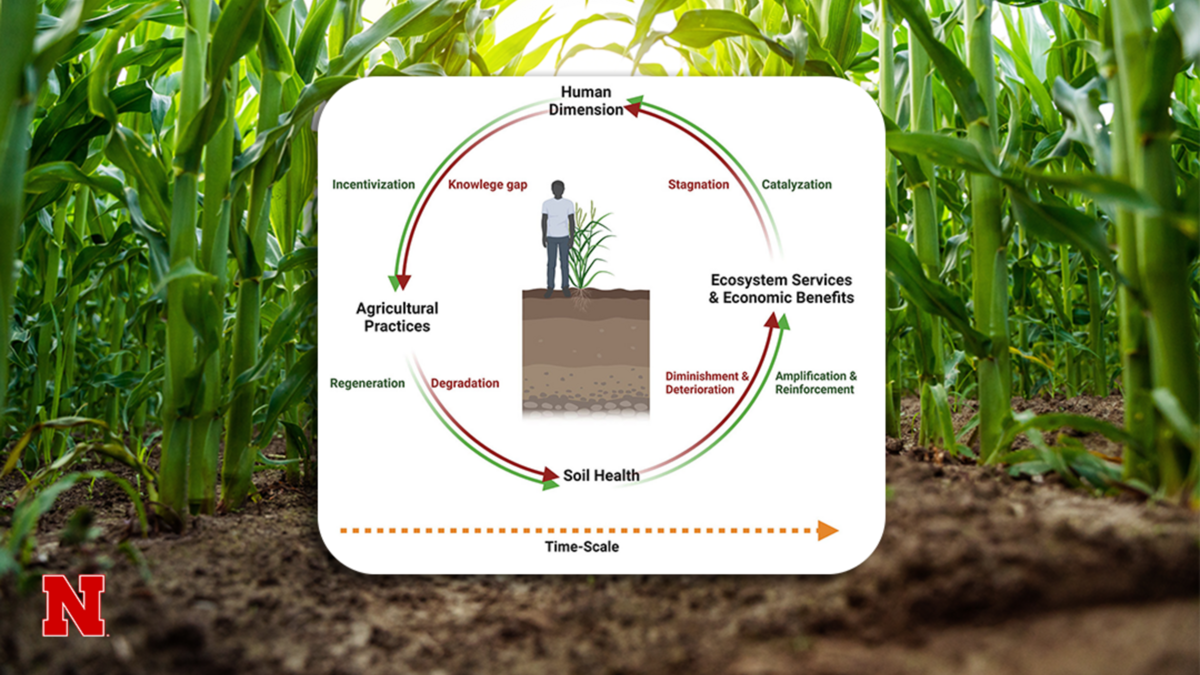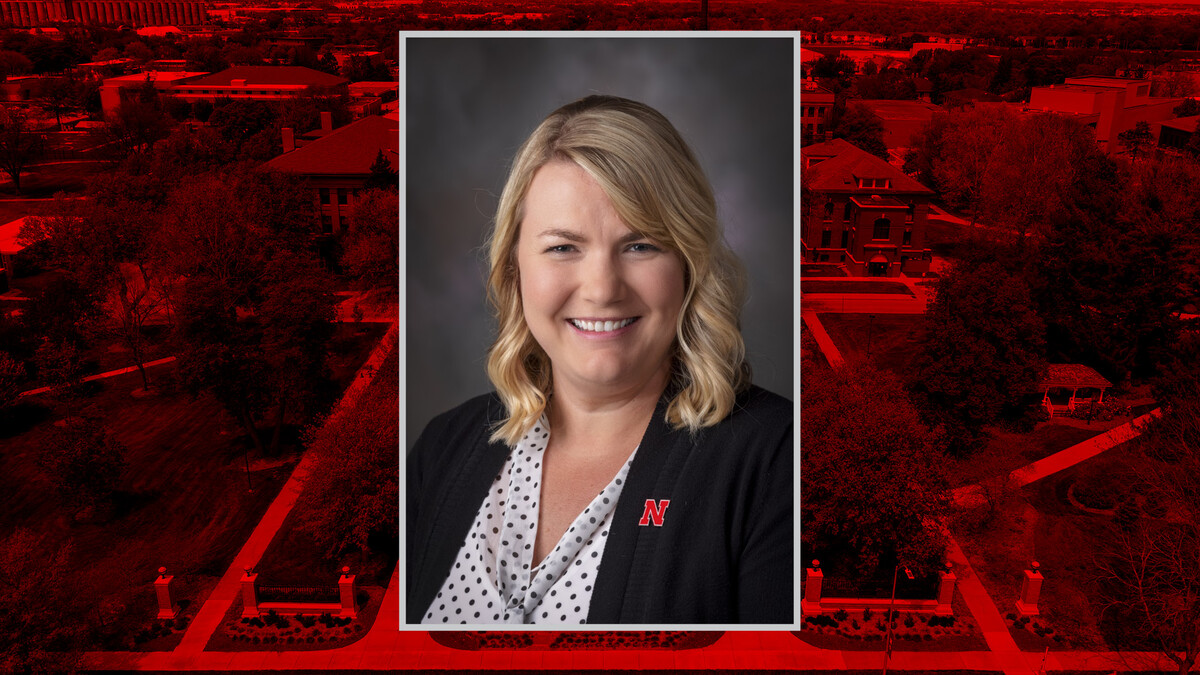Aug. 20, 2013
LINCOLN, Neb. — The University of Nebraska-Lincoln has released a new wheat variety that is especially well adapted to rainfed production systems.
Husker Genetics Brand Freeman is a joint release of UNL and the U.S. Department of Agriculture-Agricultural Research Service. It is named for Daniel Freeman, who is recognized as the first person to file for a homestead under the Homestead Act of 1862, which celebrated its 150th anniversary in 2012.
UNL agronomist and wheat breeder P. Stephen Baenziger said the wheat variety is particularly well suited for rainfed wheat production throughout Nebraska and in states north and west of Nebraska.
Freeman is the 34th wheat variety released during Baenziger's UNL tenure. Varieties developed by the UNL-USDA partnership typically comprise 60 to 65 percent of the wheat grown in Nebraska.
"Based upon the results from the Nebraska State Variety Trials for three years of testing, Freeman has either topped the trial or been in the highest yielding group in rainfed production in southeast, south central, west central, and western Nebraska," Baenziger said. "We always recommend looking at the three years averages because historically there has been considerable climate variation from year to year."
Freeman is not recommended for irrigated production as other lines are better suited for those conditions.
Freeman is a semi-dwarf wheat that averages 33 inches tall. It is resistant to Soilborne wheat mosaic virus and is among the best for resistance to bacterial streak. Freeman is lower in grain volume weight which is similar to NuPride Genetics Brand Camelot and Wesley, but lower than Husker Genetics Brand Overland. Freeman should be acceptable to the milling and baking industries.
Freeman will be an excellent complementary wheat to Camelot, Overland, Husker Genetics Brand Robidoux, and Husker Genetics Brand Settler CL. The latter four lines continue to perform extremely well across Nebraska and in similar areas in adjacent states, Baenziger said. In individual regions, other lines have performed very well, but lack the broad adaptation of Freeman, Camelot; and Overland, Robidoux, and Settler CL.
New varieties from other programs that should be considered for Nebraska production are SY Wolf; Westbred Cedar and Winterhawk; and Plains Gold Byrd, Denali, and Brawl CL plus. Additional data on these and other varieties (many of which have fewer years of testing, but look promising) can be found at http://cropwatch.unl.edu/web/varietytest/wheat.
"No wheat variety has all the needed traits for every year and every region, so we highly recommend that wheat growers consult the Nebraska Wheat Variety Testing webpage to find the latest information on varieties and to diversify their risk by growing complementary varieties," Baenziger said.
P. Stephen BaenzigerProfessor
Agronomy and Horticulture
402-472-1538
pbaenziger1@unl.edu
Dan Moser
IANR News Service
402-472-3030
dmoser3@unl.edu







